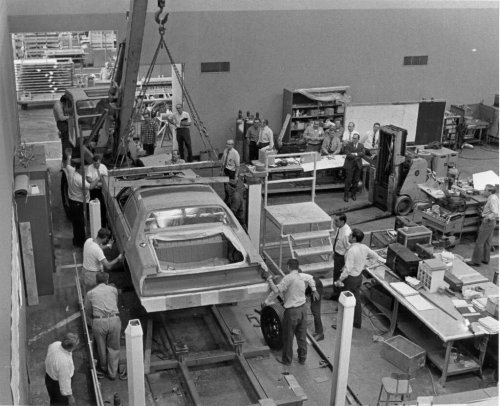Orionblamblam said:
Hammer Birchgrove said:
First of all, the nuclear industry gets both direct and indirect subsidizes. Without help they wouldn't be more, they would have been out-competed by cheaper coal plants before getting a chance to be built.
Seriously arguable.
Same people would simply refuse to buy electricity from companies with nuclear power stations.
The French seem to do ok. Just like the "Sea Shepard" and "Greenpeace" people seem to be just fine with tooling around the oceans in filthy, inefficient smoke-generators.
And if someone doesn;t want to buy cheap nuclear electricty? More power to 'em.
Here in the US we have four particular, though not so obvious, problems getting nuclear power plants on line.
The first is "Regulatory Ratcheting". It takes a while to build a nuclear power plant. Part of this is actual construction, part is the approval process and part is fighting the inevitable lawsuits. During the construction of the plant, in many cases the regulatory requirements are "ratcheted up". In other words, when the design was first approved, there were a set of regulations it had to meet. During the construction, however, regulations were "ratcheted" upwards by Federal, State or local authorities. These are almost always retroactive, so you've got to go back and modify the design during construction with the inevitable rise in costs. For example, we have data from the 1970s. During this period, regulatory requirements increased the quantity of steel needed in a power plant of equivalent electrical output by 41%, the amount of concrete by 27%, the lineal footage of piping by 50%, and the length of electrical cable by 36%. These were applied not only to new designs, but also to plants under construction. It's like trying to hit an invisible moving target, so costs skyrocket.
The second reason is those who clog up the approval hearings. For example, when their time comes to present, they just read aloud from newspapers for days on end. Or they "cross examine" those applying for permits, raising issues that have nothing to do with the plant in question or even nuclear power at all. This gets overcome, but causes delays which drives up costs which was the goal all along. The never-opened Shoreham plant on Long Island is representative of how the tactics I describe here work. It was delayed for 3 years using the tactic of gumming up the hearings, but there was more to come.
Then there is the tactic of a local official who uses his power to play with the requirements to sabotage the project. For example, one of the NRC requirements is that there be a system and plans in place to sound warnings and do an evacuation of surrounding people in the extremely remote chance something dangerous escapes the plant. A controlled exercise with local officials is required to test the reality of the system and plans. Returning to Shoreham, the local officials in the county where Shoreham is located, refused to cooperate in these exercises, making it impossible to fulfill the NRC requirement. Keep in mind that at this point the plant was complete. This has happened elsewhere, Gov. Mike Dukakis pulled the same stunt at the Seabrook plant. Eventually the NRC took note of what was happening and ruled that if something did happen of course the local emergency teams would respond and so issued the permit. Of course, billions more were added in cost.
Finally, there is "judge shopping". If you file enough court cases in enough places, you'll eventually find a judge who for idealogical reasons will issue an injunction or a requirement to go out and revisit the entire certification process again before you can operate. This also happened at Shoreham and at other plants under construction.
The bottom line on Shoreham was that it became apparent to investors and the utility that tactics like the above would drive the costs to unbelievable levels. The State then stepped in and bought the plant and decomissioned it. Remember, the pant was complete, it just had to be turned on. So, the taxpayers of Long Island were stuck with a $6 billion bill for which they received nothing. This happened elsewhere; a good portion of the movie movie "The Abyss" was filmed in the containment vessel of another nuclear power plant that was abandoned during construction for much the same reasons.
It was what happened at Shoreham, the realization that no matter what you do and what you spend, someone can just come along and tie you up forever, that soured the financial community on nuclear power.
Probably should change the topic given where this discussion is going. The relevance to the overall site is that I suspect that it won't be too long before we start seeing this kind of thing used against new aircraft development.
 republic567DOTsafetycar.jpg111.3 KB · Views: 89
republic567DOTsafetycar.jpg111.3 KB · Views: 89 republic568safetycarcaption.jpg74.6 KB · Views: 97
republic568safetycarcaption.jpg74.6 KB · Views: 97 republic569safetycarframediagramcap.jpg116.7 KB · Views: 103
republic569safetycarframediagramcap.jpg116.7 KB · Views: 103 republic571safetycardwg.jpg108.2 KB · Views: 93
republic571safetycardwg.jpg108.2 KB · Views: 93 republic570safetycarshop.jpg149.4 KB · Views: 81
republic570safetycarshop.jpg149.4 KB · Views: 81 republic573safetycarframeconst.jpg117.9 KB · Views: 17
republic573safetycarframeconst.jpg117.9 KB · Views: 17 republic577safetycarbodyinjig.jpg132.5 KB · Views: 18
republic577safetycarbodyinjig.jpg132.5 KB · Views: 18




